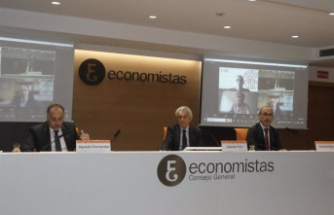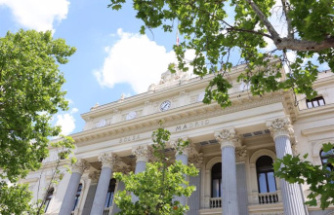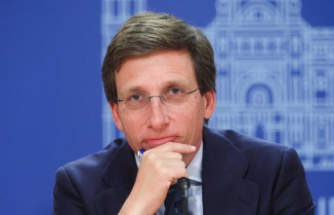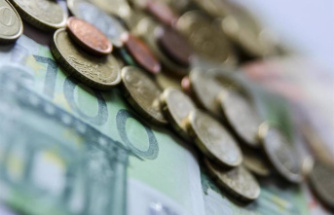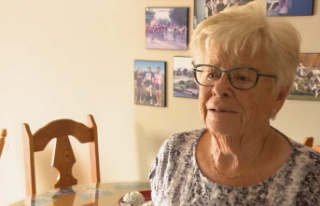Russian President Vladimir Putin said on Tuesday that Turkey's mediation had enabled progress on grain exports that Kyiv accuses Russia of blocking, while demanding in exchange a lifting of Western restrictions on Russian grain, while on the ground the Russian army continues to strike the east and the south of the country.
• Read also: Russia is working to annex Ukrainian territories under its control, accuses Washington
• Read also: Gazprom turbines: Trudeau defends the decision to circumvent the sanctions
• Read also: Ukraine wants to win the war before the onset of winter
Missile strikes hit several towns in the east, killing one in Kramatorsk, a major city in the Donbass that Russia is seeking to conquer. To the south, in the region of Odessa, the major Ukrainian port on the Black Sea, there were at least six injured, including a child, according to the Ukrainian presidency.
In Tehran, where he had been invited for talks with his Iranian counterparts Ebrahim Raisi and Turkish Recep Tayyip Erdogan on Syria and Ukraine, Mr. Putin affirmed that there was progress on the question of export by millions of tonnes of Ukrainian cereals, which are missing from the global food balance.
“Thanks to your mediation, we have moved forward,” he told Erdogan, whose country, a NATO member and regional power in the Black Sea, maintains a delicate balance between Moscow and Kyiv. . "All the questions are not settled yet, it's true, but there is movement and that's a good thing," added the master of the Kremlin.
In the evening, Mr. Putin however cast doubt on these advances, by linking the export of Ukrainian agricultural production to a lifting of Western restrictions on Russian cereals.
“We will facilitate the export of Ukrainian cereals, but on the basis that all restrictions linked to air deliveries for the export of Russian cereals are lifted”, affirmed the Russian president, at the end of the talks.
Russia has blown hot and cold in recent weeks on these crucial exports, particularly for the African continent, claiming not to oppose them while blaming Western sanctions and setting conditions that Ukraine refuses as it stands, such as the demining of its harbors and maritime corridors.
For Washington, the Tehran meeting proves Russia's growing isolation. “It shows how increasingly isolated Mr Putin and Russia are. They must now look to Iran for help,” said John Kirby, who coordinates White House communications on strategic issues.
Last episode of this immense tussle: the European Commission has proposed to member states to release “certain funds” from Russian banks frozen by EU sanctions to help the resumption of trade in agricultural and food products, including wheat and fertilizers, according to a document seen by AFP on Tuesday.
The EU "wants to make it perfectly clear that nothing in the sanctions is stopping the transport of grain out of Russia or Ukraine," a European diplomat told AFP on condition of anonymity.
About gas, another subject of tension between Moscow and the Europeans, Vladimir Putin assured that the Russian giant Gazprom "would fully fulfill its obligations" at a time when deliveries to Europe are falling.
“Gazprom is ready to pump as much as necessary,” he said, indicating that the West was in trouble because they had imposed sanctions on Moscow and “closed” hydrocarbon delivery channels.
On the ground in Kramatorsk (east), a missile fell at the end of the morning in a small garden surrounded by bars of four-storey buildings, in the heart of the city, noted AFP journalists.
This city of 150,000 inhabitants before the war, administrative center of the part of the Donetsk region still in the hands of Kyiv, is located about twenty kilometers from the front and regularly hit by gunfire.
Kramatorsk has become a strategic target for Russia, which seeks to seize the entire Donbass basin, partly controlled by pro-Russian separatists since 2014.
"At this point we have one dead," Igor Yeskov, spokesman for the city's mayor's office, told AFP, while a senior police official said six were injured.
A seriously injured man, his head bleeding and wrapped in a carpet by neighbors, was lying on the ground, before being taken away by the emergency services. "He was passing by, in the street, and was hit," said a panicked woman.
Russia announced on Saturday that it had officially ended the "operational pause" of its army decreed a few days earlier, and the bombardments resumed with more intensity on the cities of Donbass.
Russian troops thus hit residential buildings in Avdiivka, Soledar, and Bakhmout, according to the Ukrainian presidency, which listed Tuesday "two missile strikes on Toretsk", as well as "bombing of industrial areas".
Near Bakhmout, the Ukrainian army claims to have "successfully repelled" several "assault attempts". Russian forces claim to have killed 60 Ukrainian soldiers in Dolina, in the same area.
In the Odessa region, Russian forces fired seven missiles, injuring at least six people, including a child, according to the Ukrainian presidency.
The Russian Ministry of Defense for its part claimed that its strikes on Odessa had destroyed a stockpile of ammunition supplied by the West.
The head of the cabinet of the Ukrainian presidency, Andriï Yermak, underlined the need for his country to turn the tide before winter so as not to allow the Russian forces to settle permanently.
“It is very important for us not to go into winter. After the winter, when the Russians have more time to gain a foothold, it will certainly be more difficult. They take us there. It is very important for us not to give them this possibility,” he told Novoye Vremia.
For this, Ukraine is calling on the West for more precision and long-range artillery systems, such as the US-supplied Himars multiple rocket launchers, saying they could be a “game changer” and enable a counter-attack. -offensive to repel the Russian army.
In the same area, the head of French diplomacy Catherine Colonna indicated on Tuesday that six new Caesar self-propelled guns, in addition to the 12 already delivered, were "on their way" to Ukraine.
The Ukrainian Parliament validated on Tuesday the dismissal of the head of the security services (SBU) Ivan Bakanov and of the general prosecutor Iryna Venediktova, proposed on Sunday by President Volodymyr Zelensky who reproached them for insufficient efforts in the fight against Russian spies and collaborators from Moscow.
Mr. Zelensky had again announced on Monday a "review of executives" within the SBU when at least three senior officials of this organization had been suspected of high treason in recent months.
The Ukrainian services also seek to identify those, among the population, who help the Russian artillerymen to adjust their shots, or point out targets to them.
Vitali Kim, governor of the Mykolaiv region (south), constantly bombarded, announced Tuesday a bonus of 100 dollars for those who will help identify these informants. He also indicated that he planned to "close" the city of Mykolaiv for a few days in order to neutralize the traitors.
The war in Ukraine will enter its sixth month on July 24 and there is no overall civilian death toll from the conflict so far.


